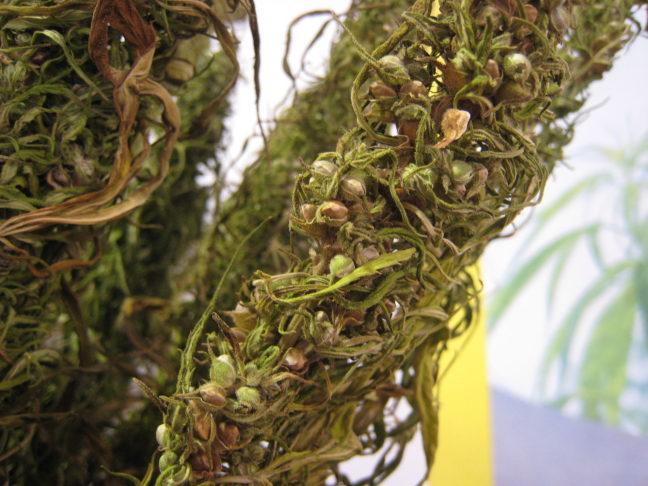Given the substantial drop in traditional farming industries, like dairy, and increased tariffs, many farmers are facing a financial crisis. The solution may be found in a controversial green plant.
The Agricultural Act of 2014 authorized Wisconsin to grow industrial hemp as part of a pilot program run by the state’s Department of Agriculture, Trade and Consumer Protection. This may lead to an increase in revenue for farmers, as the farming of hemp and other members of the cannabis family is increasing across America.
While Wisconsin has not yet legalized recreational marijuana, it has legalized cannabidiol, better known as CBD, a chemical derived from the industrial hemp Wisconsin farmers are now allowed to grow. Unlike the Tetrahydrocannabinol, CBD does not have a psychedelic effect, rendering it incapable of producing a high in its users. CBD products are used as alternative medical treatments for issues like chronic pain, inflammation and anxiety. Its growing popularity makes growing industrial hemp and processing it to make CBD products particularly lucrative for Wisconsin farmers.
Bill legalizing industrial hemp hopes to create ‘lucrative’ industry in Wisconsin
Although growing industrial hemp is legal, the transition into the growing and producing of hemp products is far from smooth sailing. One of the primary issues debated in the process was whether the plants that were part of the pilot program for the industrial hemp farming could be used for the production and sales of their crops for CBD use.
In May 2018, the Department of Justice announced farmers with permits to grow industrial hemp could use the plants to create CBD products The permits available for purchase are part of the Wisconsin Industrial Hemp Pilot Research Program and are only viable for one year. Additionally, one must also obtain a lifetime license needed to grow industrial hemp and yet another license to process the grown hemp. If a farmer is unable to get one of the permits allocated for the program, then he or she is put at a disadvantage from a business and financial standpoint. However, receiving a permit is hardly easy.
Lawmakers must be held to a higher standard in creation of welfare laws
Almost every aspect of the pilot program is highly regulated. The farmers who do apply and are accepted represent an especially dedicated, persistent and hard-working group of individuals. To get a pilot program permit one needs to not only pay a fee, but also give the state GPS coordinates and maps of their fields, present a research plan and have a signed research agreement. After the first-year, farmers can re-apply to continue their work annually with a lesser fee, but they must still meet the other requirements.
Beyond getting the permit, the farmers must also go through a background check and agree to have routine sampling and testing done at their own cost. There are even cases in Colorado of farmers needing to destroy hemp plants that had 0.47 percent THC — 0.17 percent over the legal limit for industrial hemp — which is a loss of product and a loss of respect for the work these farmers put into their crops. All of the above must also be provided in another application for the processing license and permit if the farmer wishes to process their own crops for sale.
All of these costs and fees add up and take away from the profit farmers get from selling their crops. According to the program’s overview, “participating in DATCP’s Industrial Hemp Research and Pilot Program is not without risk.” This statement alone shows the fear unjustly imposed upon farmers who are looking to grow industrial hemp. Furthermore, it represents the presence of stigma and fear surrounding hemp and its products.
It is unfair to limit Wisconsin farmers, who are already hurting, based on restrictions and regulations caused by misinformation. Lack of knowledge surrounding cannabis, CBD and the like is not a legitimate basis for pursuing actions against this viable method of increasing local profit and communal health. There must be a change in the way people view this new field as society progresses.
Emiliana Almanza Lopez ([email protected]) is a junior majoring in sociology and environmental science.














